|
"Everyone is a genius. But if you judge a fish by its ability to climb a tree, it will live its whole life believing it is stupid."
I believe Albert Einstein said this, but it's been debated. This quote has also been criticized for a few reasons, one being that by calling everyone a genius, especially children, that they may believe they don't have to work hard in life. I don't really see it that way. What it means to me is that when it comes to learning, not all children are the same and shouldn't be treated as such.
0 Comments
Gradeless schools and classrooms seem to be a hot topic of conversation in my life right now, so I wanted to address the idea of “going gradeless” here on my blog.
Let’s talk about what it means to have a gradeless school or classroom, the benefits of taking that route, and what to do to measure or demonstrate learning instead. Differentiating learning is the world's best classroom management strategy, in my humble opinion, and personal learning plan templates are the perfect tool for personalizing learning in your classroom. But how do you use personal learning plan templates? Let's dive in.
What is personalized teaching?
In short, personalized teaching is offering personal learning / customized learning opportunities for each student. Learning experiences are based around every students' unique background, interests, strengths, challenges, goals, and more. Distance learning is a challenge in itself, as is differentiated learning, even in a classroom setting when you are face-to-face with students on a daily basis. But differentiating learning from a distance significantly adds to the challenge. How do you engage high school learners in content and skill-building while also considering and applying each student's unique qualities and circumstances?
In 2008 I signed on to to work as a project-based educator at a small charter high school in St. Paul. I knew that I would be taking on far more than the role of "teacher", as most educators do, but I had no idea when I started this job that I would end up being the events coordinator, which included the high school graduation ceremony. I went on to plan a commencement ceremony for 20ish students every year for 9 years. As some of you can relate, as a newbie, I rarely said "no" to a request. So when my director asked that I take on the graduation planning, I enthusiastically agreed because I wanted to prove myself. As nervous and ill-prepared as I was to take on the responsibility of organizing one of the most important events in a person's life, I did it, figured it out, and am grateful that I did. I got to be a part of something incredible. Many of my students were first generation high school graduates. Others were told for much of their lives that they would never graduate or amount to anything. I got to be a part of proving their doubters wrong, proving my students wrong about themselves, making them feel special, valued, and worthy, for at least one day. A small graduation ceremony, one with few graduates such as a charter school, alternative program, homeschool co-op, etc., should be intimate, special, and personalized to EACH student. Over the course of 10 years I think I've figured it out, and I'm here to share some of what we did to honor each student and celebrate their unique achievements that brought them to this profound and unforgettable moment in their lives. Before getting into ceremony ideas for a small and intimate high school graduation, I should note that I was the graduation ceremony coordinator. I did plan it or run it by myself. I organized a student graduation committee that helped plan and execute the ceremony. Students have awesome ideas. I highly recommend putting together a committee. How to Plan a Small Group Graduation Ceremony1. Student-Selected Personal Speaker: Each student invites one special person in their lives - a parent, mentor, friend, teacher, sibling, etc. - to speak about that student and introduce the student to the stage to receive their diploma. 2. Senior Theme: At the beginning of the year start making observations about your seniors, and take note. By the end of the year pull seniors together to settle on a theme that represents the group. It could be an adjective that describes the group as a whole, a word that describes an experience that they all shared, or a theme that represents their graduation year. Every ceremony idea that follows below could follow the theme determined by graduates. 3. Personalized Gift Bags: Put together gift bags for each graduate with a few items that represent each unique individual. For example, if a graduate loves to bake you might add a customized spatula, some spices, a cookbook, etc. All of the items do not have to follow a theme, but should reflect the interests, passions, personalities, goals, etc. of each graduate. 4. Personalized Videos: The students in my graduation committee produce a customized video for EACH graduate with photos and videos of students learning, as well as interviews with friends, family, teachers, and more. Those videos are played at the graduation ceremony and are shared with students to keep as momentos. 5. Relevant and Personal Keynote Speaker: Small learning environments organically foster relationship-building, camaraderie, mentorships, and more, because students go through significant life and learning experiences with each other. With that said, an important figure or community collaborator that has been present in the lives of the graduates and have been supportive in their high school journey, make the best keynote speakers. Choose someone that has personal significance to graduates rather than someone random spouting off their idea of "success". 6. Graduate Performance: This is a tricky one to coordinate, but if you have a really small group of graduates, have them create and organize a performance. They can write and perform a song, a skit, a dance, poetry, and so on and so on. This is a group effort that includes all graduates. If this is a logistical nightmare, try to get a graduate or two to perform on their own instead of the entire graduating class. If you can pull off a full-group performance, however, do it. It makes students feel included and important. 7. Student Bios: Write student bios into the ceremony script. At the beginning of our graduation ceremony, the MC's introduce each graduate one-by-one by reading a written bio. The introduction includes graduates' hobbies, interests, shining achievements, and where they're headed or goals for the future. 8. Senior Shirts: Every year our underclassmen design and make senior t-shirts for graduates. Again, this could follow the theme that seniors decide on earlier in the year. Other students in the school, staff members, family, friends, community members, etc. sign the back of the t-shirts, sort of like a yearbook, and those shirts are added to graduates' gift bags. 9. Personalized Graduation Day Frames: In the past, the graduation committee has ordered basic frames and customizes them for each student. Every year one of our staff members organizes a senior photo shoot offsite. We add the photos from that shoot to each frame and give them to graduates at the ceremony. 10. Playlist: Create an album, like a "mixed tape", for each student and share it with them. Each playlist could be customized for each student or the playlist could consist of popular or significant songs from the graduation year. 11. Senior Field Trip: In the past our seniors have organized and hosted fundraisers to raise money for an offsite experience just for graduates . This is not technically a ceremony idea, but could be a field trip that they go on right from the ceremony. My students usually choose to go to our local amusement park. 12. Senior Dinner: Underclassmen plan a dinner for graduates and their parents. Graduates often have family plans post-ceremony, so this dinner doesn't need to take place on the night of the ceremony. It's just another way for graduates to feel special and soon-to-be seniors pumped up for the coming year. 13. Graduate Philosophy Statements: The director of my school started this tradition before I began teaching there, but it was a special experience for everyone involved, so we kept the tradition going for a while. Each senior writes a philosophy statement; a statement that highlights who they are, their dreams, their goals, what life is about for them, and how their high school experience helped shape that philosophy. 14. Photos Exhibit: The graduation committee spends the year collecting photos of seniors in action; on field trips, giving presentations, working on projects, working within the community, etc. The committee organizes these photos onto boards and puts them on display at the graduation ceremony. Friends and family can view the exhibit before and after the ceremony. 15. Graduating Class Slideshow: One ceremony idea already mentioned was making personalized videos of each graduate to play at the ceremony. This is labor intensive, especially if you do not have a graduation committee to take on some of the load. If it's too much, consider putting together a slideshow with videos and photos of the entire graduating class. Play the slideshow during the ceremony or have it displayed while guests take their seats. There are so many neat ways to make graduates in a small graduating class feel special on their big day. The ones mentioned above are a few that have lasted the test of time. We have tried many other little touches, and have kept some going and have ditched others. Trial and error, right?! I would love to hear any graduation ceremony traditions that you have seen or experienced.
Follow Experiential Learning Depot on TpT, Pinterest, and Instagram for more on experiential education. If you follow my blog you know my philosophy by now. Every topic I discuss here from student-directed learning to learning through travel leads back to one goal - that all of my students have a passion for learning. My dream as an educator is that all learners LOVE to learn. Janie Scheffer is on that mission with her own students, to ignite a passion for reading and writing specifically. She does this with conferring. Check it out.  Janie is a former classroom teacher and current freelance writer in Minnesota. She has taught in various classrooms K-12. Her love for all things reading and writing encouraged her to pursue a master’s degree in literacy. When she is not reading or writing, you can find her sipping coffee, enjoying the outdoors with her husband, or taking her sweet puppy Mabel Jo for a walk. Conferring Creates Conversation, Collaboration, and CamaraderieWould you like to better connect with your students as unique readers and writers? Do you feel the demand of state standards and numerical data collection pressing down on your shoulders? Do you wonder how to manage it while still fostering a love for reading and writing within your classroom? You’re not alone. I’ve been there. The summer of 2017 I was grappling with my literacy instruction in my first grade classroom. For three years previous, I had continuously refined my practices and felt as though I had a pretty good grip on my guided reading groups and writer’s workshop. Collectively, mini lessons fueled by learning targets, independent practice at each student’s level, and literacy materials that supported the needs of my students proved to be overall effective. In many ways, my literacy instruction was shaping into what I had imagined – targeted literacy instruction for each student, driven by data collection. Yet, I knew something was missing. Sure, as a class we enjoyed stories together and wrote stories together. We discussed authors that we liked and tried writing like them. But I had to face the harsh reality that most of my energy and focus revolved around helping my students meet the following: 80 words correct per minute benchmark, achieve sufficient comprehension levels, write across the pages in narrative, opinion, and informational formats, and so forth. Data meetings provided beneficial focus and analyzation of each of my readers and writers, propelling me forward in meeting the needs of my students even more. The scale, though, had tipped. My classroom instruction was out of balance. The demands of literacy benchmarks overpowered what I wanted to be the true heartbeat of my literacy classroom: a genuine love for reading and writing. Thankfully, during the summer of 2017 I was approaching my final semester of graduate school and was needing to hone in on a final action research project and paper. My predicament with my literacy instruction provided the answer for my wondering of what to research and pursue. I quickly came across the work of Patrick Allen and Lucy Calkins, experts on literacy conferring. Their books opened up a whole new perspective for me and literally shaped my action research and current literacy instruction: Patrick Allen – Conferring with Readers Lucy Calkins – Conferring with Writers The practice of conferring, I believed, would bring back the JOY of reading and writing in my classroom, through human connection. At the basis of conferring, a teacher sits with one student at a time during reader’s and writer’s workshop to engage in a student led conversation about the student’s reading or writing. Patrick Allen states: “Sitting next to a child while you confer guarantees that those few minutes will begin and end with the child.” This resonated with me immediately. I wanted my interactions regarding literacy with my students to revolve around them, NOT how they measured up against certain benchmarks. I was over the moon to find out how systematic conferring is. Raise your hand if you’re a type A personality like me? Most teachers are, let’s be honest! Systematic, in that the teacher plans these short student led conversations weekly, and so conferring becomes a routine for the teacher and the students. Even more, because this is a systematic practice, conferring becomes a powerful tool within a classroom community. Lucy Calkins argues: “Conferring can give us the force that makes our minilessons and curriculum development and assessment and everything else more powerful. It gives us an endless resource of teacher wisdom, an endless source of accountability, a system of checks and balances. And, it gives us laughter and human connection – the understanding of our children that gives spirit to our teaching.” BINGO. Human connection and spirit to my teaching was lacking as I solely chased numerical data. I knew I had to give this conferring a fair shake. As the new school year approached, I excitedly planned for my conferring action research in my first grade classroom. The following was my initial focus for implementation:
Human connection paved the way for authentic learning and growing. Through conversation, collaboration, and camaraderie, I was able to connect more meaningfully with my students than ever before. It didn’t take long before a simple “What are you reading/writing today?” sparked the 5-10 minute conference. As the teacher, I was careful to ensure that the student’s voice commanded each conversation. And, I’ll be honest, this was easier with some students than others. But what I found was patience and allowing ‘think time’ communicated to the student that I’m not pushing, this is not a high-stress situation, and I’m here whenever the student is ready. For a few of my students, it took until December for them to embrace conferring, especially leading the conversation. With my more reluctant learners, the collaboration aspect of conferring was key. Again, driven by casual conversation, conferring should be a low-risk situation for all students. Therefore, when I talked about conferring with my students, I presented myself as the ‘coach’ coming alongside them. Often, I’d say things like “We are a team when we confer!” just so that the idea that I’m an evaluator within the conference diminished. And finally, camaraderie was established. By spring of 2018, there was a level of trust and rapport with each of my students that I had never achieved before. With camaraderie, our 5-10 minute conversations evolved into deeper learning. Students were choosing to share with me incredible nuggets of information that got at the heart of why they were the readers/writers and even humans that they were. While getting a clear understanding of who they were as readers and writers, I also got glimpses into their hearts as humans. Priceless. Which brings me to my last point… data collection. It took me a while to determine my data collection methods during conferring. And truthfully, I was overwhelmed to think about another collection of data. But all those incredible nuggets of information practically wrote themselves down, as important as they were, I found that data collection was easy – yes EASY! – because it didn’t revolve around numerical data or word lists or timed tests. In fact, I came up with a simple electronic record on my iPad that allowed me to quickly type up the data at the closing of each reading/writing conference. See below for a snapshot of it: Reading Conference: Reading Conference: Writing Conference: The overarching theme of my conferring data was the reading and writing behaviors of my students. In other words, I now had a living document of what my students DO as readers and writers. Knowing their habits, their strengths and areas for improvement, and their processing/thinking while reading and writing was so beneficial. In reviewing my data collection, I was able to provide one TP (teaching point) for individualized instruction for each conference. Often, the TP would align with the reading/writing learning target of that day or week, but not always. And that is the true advantage of conferring; there is flexibility and opportunity for you as the teacher to determine what’s important for the student you are sitting alongside on that particular day.
I’m going to leave you with words from Patrick Allen that I can confirm are true: “Coming to know conferring has been a journey, but when you spend time and intention on an instructional practice, the benefits are well worth the effort.” If you’re feeling stuck, weighed down, and ready for the LOVE of reading and writing to ignite within your classroom, I’d say start with conferring. Don’t just dabble, commit. It will prove to be worthy of your time and your students' time. It is NOT 'just another thing to do' on our never ending ‘To Do’ lists as teachers. YOU CAN DO IT. Happy conferring! Contact me! [email protected] linkedin.com/in/janie-scheffer-589906189 Personalized Learning Buzz Words: What are they and what do they mean?I talk a lot about personalized learning in this blog, which I'm not sure I've ever explained. I just talk about it here as if everyone knows what it is. Everyone likely has a basic understanding of it based on the words themselves. It's learning that is personal. Students learn by having their personal needs met and interests considered. Personalized learning by nature accounts for and works around differing abilities and skill levels.
Some words associated with personalized learning that I often use here include: competency-based learning; autonomy, mastery and purpose; differentiation; student-directed; mastery-based; proficiency-based; interest-driven; project-based; and self-efficacy. This article does a really great job of defining these words and explaining why they're important. As a parent I want my children going to school where the meaning of those terms are considered and applied to my child's education. What approaches do you take to personalize learning in your classroom? I'd love to hear some ideas. Have a fantastic weekend, everyone! Hope, Agency, Mastery and Other Terms Educators are Redefining, by Anya Kamenetz
Happy college season! For some, that season is long over, having completed early applications over the summer. Phew! Now all you have to do is wait! For some, you're still trying to get everything figured out. Preparing application materials for deadlines, considering a gap-year. Maybe even wondering if college is for you at all. I get that. I've been there! College is truthfully not for some in my opinion. You do you!
|
Blog IntentTo provide innovative educational resources for educators, parents, and students, that go beyond lecture and worksheets. AuthorSara Segar, experiential life-science educator and advisor, curriculum writer, and mother of two. Categories
All
|








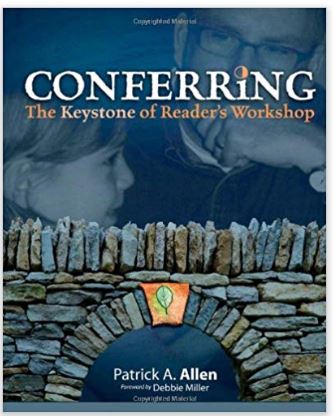
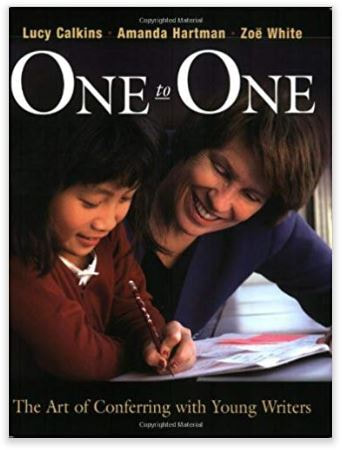
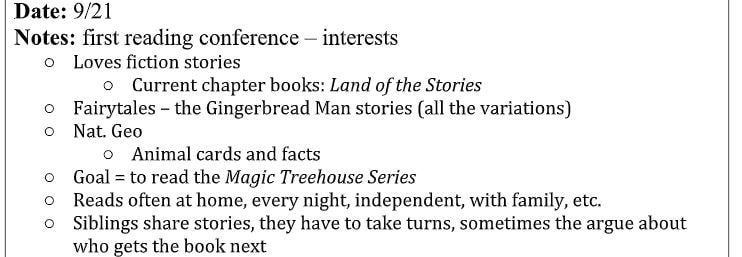
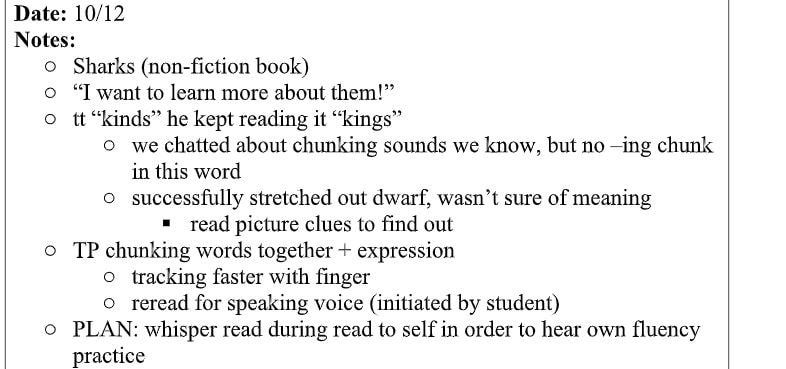

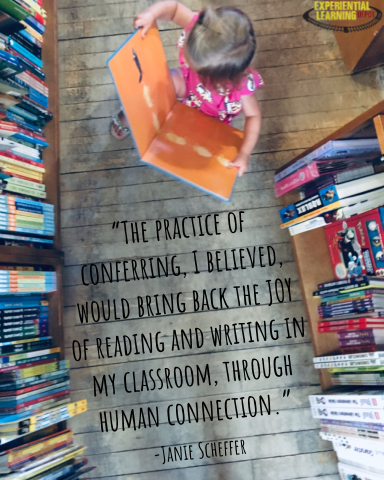




 RSS Feed
RSS Feed